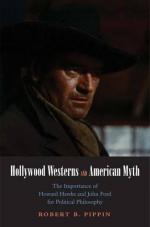|
This section contains 3,486 words (approx. 12 pages at 300 words per page) |

|
SOURCE: Sensabaugh, G. F. “Fame and Confusion.” In The Tragic Muse of John Ford, pp. 1-12. Stanford, Calif.: Stanford University Press, 1944.
In the following essay, Sensabaugh proposes that Ford can be viewed as a prophet of modern thought in that his dramas explore the nascent issues of scientific determinism and extreme individualism.
I
John Ford stands in the eyes of competent critics as a poet of considerable stature. Commentary uniformly commends his solemn blank verse and his poetic power; editors include at least one of his plays in every important collection of Renaissance drama. Indeed, Charles Lamb places him in the “first order of poets”;1 and subsequent criticism, though less adulatory, unanimously maintains that Ford's polish and skill entitle him to fame in an age which gave England Shakespeare. Swinburne, for example, describes Ford's poetry as “piercing and intense of sight, steady and sure of stroke, solemn and...
|
This section contains 3,486 words (approx. 12 pages at 300 words per page) |

|


